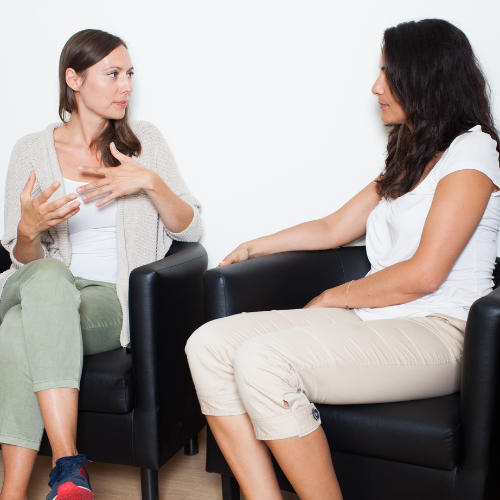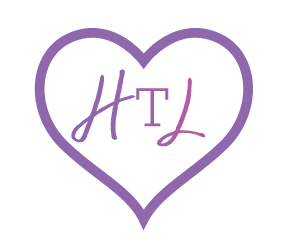Domestic violence leaves deep emotional scars that can affect every aspect of a survivor’s life. Beyond the physical wounds, the psychological impact of abuse can linger long after the violence has ended, making it difficult to move forward. Counselling plays a crucial role in helping survivors heal these emotional wounds, regain their sense of self, and rebuild their lives. This article explores the transformative power of counselling for domestic violence survivors, highlighting the different types of therapy available, the benefits of counselling, and how to access the support needed for recovery.
Understanding the Emotional Impact of Domestic Violence
Domestic violence is not just a physical assault; it is a complex pattern of behaviours designed to control, intimidate, and harm. The emotional and psychological effects of such abuse can be profound, affecting a survivor’s mental health, self-esteem, and overall well-being.
Common Emotional and Psychological Effects
- Anxiety and Depression: Survivors often experience high levels of anxiety and depression due to the constant fear and emotional trauma they have endured.
- Post-Traumatic Stress Disorder (PTSD): The traumatic experiences of abuse can lead to PTSD, characterized by flashbacks, nightmares, and severe anxiety.
- Low Self-Esteem: Abusers often erode their victims’ self-worth, leaving them feeling worthless, powerless, and unable to make decisions.
- Trust Issues: Survivors may find it difficult to trust others, including friends, family, and future partners, due to the betrayal they experienced.
- Guilt and Shame: Many survivors struggle with feelings of guilt and shame, often blaming themselves for the abuse or feeling ashamed of their situation.
These emotional wounds can be debilitating, but counselling offers a pathway to healing and recovery.
The Role of Counselling in Healing Emotional Wounds

Counselling provides a safe and supportive environment for survivors to process their experiences, understand the impact of the abuse, and develop coping strategies. Through therapy, survivors can begin to heal from the trauma and rebuild their lives with renewed strength and resilience.
Types of Counselling for Domestic Violence Survivors
There are various therapeutic approaches that can be effective for survivors of domestic violence. Each type of counselling offers unique benefits, and a combination of therapies may be used to address different aspects of the survivor’s emotional and psychological needs.
1. Individual Counselling
Individual counselling involves one-on-one sessions with a therapist, focusing on the survivor’s personal experiences and emotions. This form of therapy allows survivors to explore their feelings, identify patterns of thought and behaviour, and work through the trauma at their own pace.
Benefits:
– Provides a safe, confidential space to express feelings and emotions.
– Helps survivors develop personalized coping strategies.
– Allows for deep, focused work on specific issues like self-esteem and PTSD.
2. Group Therapy
Group therapy involves sessions with other survivors, led by a trained therapist. In this setting, survivors can share their experiences, offer support to one another, and learn from others who have gone through similar situations.
Benefits:
– Reduces feelings of isolation by connecting with others who understand.
– Provides a sense of community and mutual support.
– Encourages sharing of coping strategies and insights.
3. Cognitive Behavioural Therapy (CBT)
Cognitive Behavioural Therapy (CBT) is a structured, goal-oriented form of therapy that focuses on changing negative thought patterns and behaviours. CBT helps survivors recognize and challenge distorted thinking that may have developed as a result of the abuse.
Benefits:
– Helps reframe negative thoughts and develop healthier perspectives.
– Teaches practical skills for managing anxiety, depression, and PTSD.
– Focuses on immediate issues and provides tools for daily life.
4. Eye Movement Desensitization and Reprocessing (EMDR)
EMDR is a specialized therapy designed to help survivors process and integrate traumatic memories. Through guided eye movements, EMDR helps to reduce the emotional intensity of traumatic memories, allowing survivors to process them more effectively.
Benefits:
– Reduces the distress associated with traumatic memories.
– Helps survivors integrate traumatic experiences into their life narrative.
– Can be effective in treating PTSD and other trauma-related symptoms.
5. Trauma-Informed Therapy
Trauma-informed therapy considers the complex impact of trauma on a survivor’s life. This approach focuses on creating a safe, supportive environment and emphasizes the survivor’s empowerment and choice in the healing process.
Benefits:
– Creates a therapy environment that is sensitive to the needs of trauma survivors.
– Empowers survivors to take control of their healing journey.
– Focuses on safety, trust, and collaboration in therapy.
The Benefits of Counselling for Domestic Violence Survivors

Engaging in counselling can bring about significant positive changes in a survivor’s life. The benefits of counselling extend beyond emotional healing, helping survivors to regain control of their lives and build a brighter future.
Emotional Healing and Recovery
Counselling helps survivors process and heal from the emotional wounds of domestic violence. By addressing the underlying trauma, survivors can begin to experience relief from symptoms of anxiety, depression, and PTSD.
Rebuilding Self-Esteem and Confidence
One of the most damaging effects of domestic violence is the erosion of self-esteem. Counselling helps survivors rebuild their self-worth, recognize their strengths, and regain confidence in their abilities and decisions.
Developing Healthy Relationships
Survivors often struggle with trust and relationship issues after experiencing abuse. Counselling provides tools and strategies for building healthy, supportive relationships in the future, free from the patterns of abuse.
Empowerment and Independence
Counselling empowers survivors to take control of their lives, make decisions that align with their values, and set boundaries that protect their well-being. This empowerment is crucial for rebuilding independence and moving forward.
Coping with Triggers and Stress
Survivors of domestic violence often face ongoing challenges related to triggers and stress. Counselling equips them with coping strategies to manage these challenges effectively, reducing the likelihood of being overwhelmed by emotions.
Accessing Counselling and Support Services

Finding the right counselling and support services is a critical step in the healing process. In Australia, numerous resources are available to help survivors of domestic violence access the care they need.
How to Find a Counsellor
- Referrals from Healthcare Providers: Speak to your GP or healthcare provider for a referral to a qualified counsellor or therapist who specializes in domestic violence and trauma.
- Community Services: Many community organizations and shelters offer counselling services or can connect you with a therapist who has experience working with domestic violence survivors.
- Online Directories: Websites like the Australian Psychological Society (APS) and Head to Health offer directories of registered counsellors and therapists, allowing you to search by location and specialty.
Free and Low-Cost Counselling Services
- 1800RESPECT: Provides confidential counselling and support for survivors of sexual assault and domestic violence.
– Contact: 1800 737 732
- Lifeline Australia: Offers crisis support and counselling for individuals experiencing emotional distress, including survivors of domestic violence.
– Contact: 13 11 14
- Relationships Australia: Provides counselling and support services for individuals and families affected by domestic violence.
– Contact: 1300 364 277
- Community Legal Centres: Many community legal centres offer free counselling services as part of their support for domestic violence survivors.
Online and Telehealth Counselling Options
With the rise of digital health services, many counselling sessions can now be conducted online or via telehealth, offering greater flexibility and accessibility for survivors.
- Telehealth Counselling: Many therapists offer telehealth sessions, allowing you to receive counselling from the comfort and safety of your home.
- Online Therapy Platforms: Websites and apps like BetterHelp and Talkspace connect you with licensed therapists who specialize in trauma and domestic violence.
Self-Care and Continuing the Healing Journey

Counselling is a powerful tool for healing, but it’s also important to incorporate self-care practices into your daily life. Self-care can complement the work done in therapy and support your ongoing recovery.
Self-Care Practices for Survivors
Mindfulness and Meditation: Practice mindfulness and meditation to help manage stress, anxiety, and emotional triggers.
Physical Exercise: Engage in regular physical activity, which can boost your mood, reduce stress, and improve your overall well-being.
Creative Expression: Explore creative outlets like journaling, painting, or music to express your emotions and process your experiences.
Healthy Relationships: Surround yourself with supportive, understanding people who respect your boundaries and encourage your healing.
Building a Support Network
A strong support network is essential for ongoing recovery. This network may include friends, family, support groups, and professionals who understand your journey and offer encouragement and assistance.
Friends and Family: Reconnect with trusted friends and family members who can provide emotional support and companionship.
Support Groups: Join support groups for survivors of domestic violence, either in person or online, to connect with others who understand your experiences.
Community Resources: Engage with community resources and organizations that offer ongoing support, counselling, and education.
The emotional wounds inflicted by domestic violence can be deep and lasting, but with the right support, healing is possible. Counselling plays a pivotal role in helping survivors process their trauma, rebuild their self-esteem, and regain control of their lives. By accessing counselling and support services, survivors can embark on a journey of healing and empowerment, ultimately creating a brighter, more fulfilling future.
Whether you are just beginning your recovery journey or are looking for ongoing support, counselling can offer the guidance and tools you need to heal from the emotional wounds of domestic violence. Empower yourself with the knowledge and resources available, and take the first step towards a brighter, healthier future.
At Healing Through Love, we are dedicated to providing resources, support, and education to help survivors of domestic violence navigate their healing journey. Remember, you are not alone, and there is hope for a life filled with peace, strength, and resilience. Reach out, seek support, and take the steps necessary to heal and rebuild your life.


